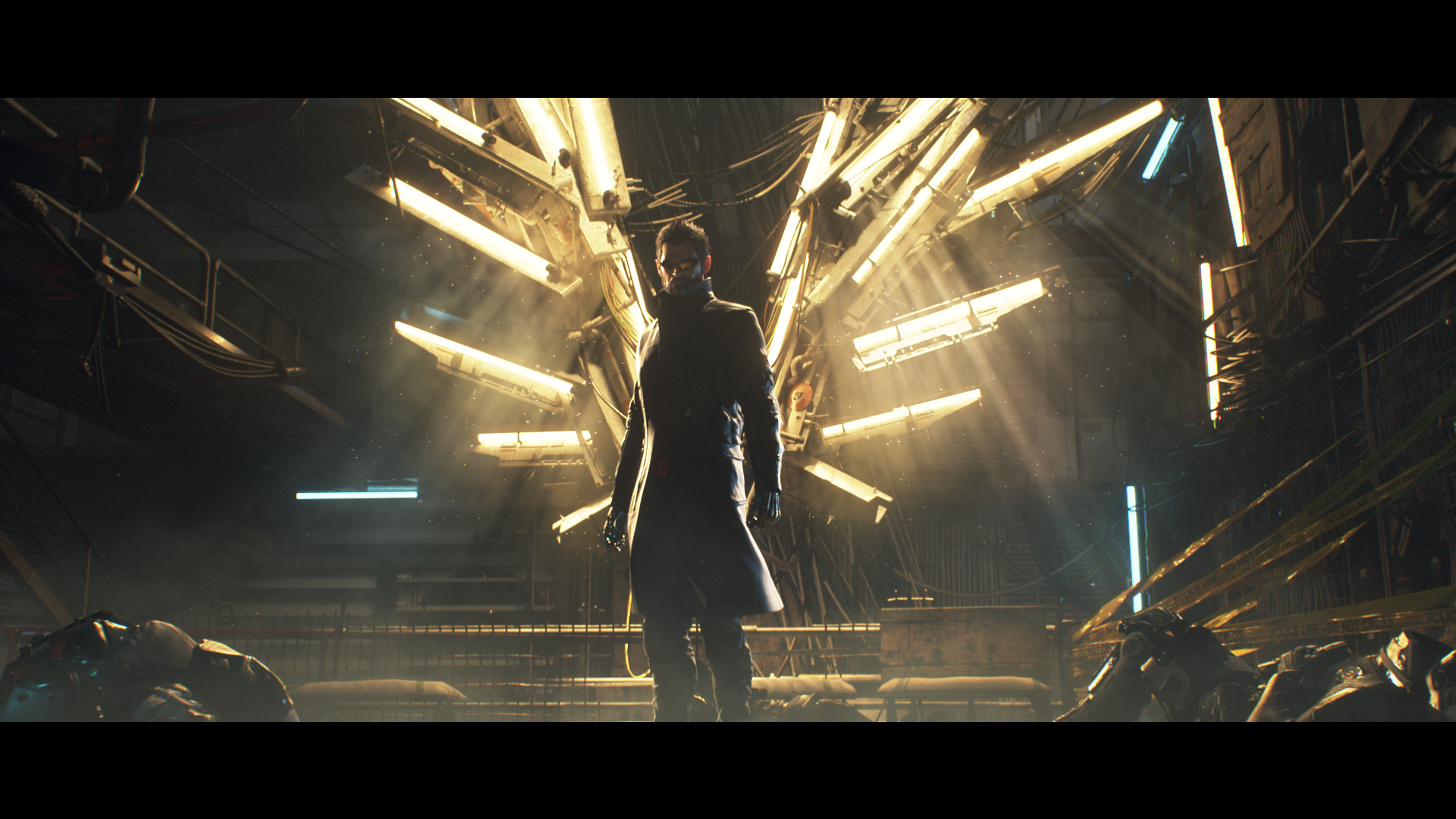
A God from the Machines: The Story of Deus Ex’s Success
Choices. We make them every day, and they affect our lives. But up until the Deus Ex series, real choices were few and far between in gaming. Sure, you could choose to hear the same speech over again if you didn’t understand it the first time, but Deus Ex presented you with real freedom of choice right from the first screen. Do you want the game you just bought to be a conventional first-person shooter? A stealth-action title? A hacking simulator? An adventure game? Or a combination of those? All those options were available to you out of the gate, which not only made Deus Ex an incredibly replayable game, it made it nearly unique in terms of depth and scope for its time.
This formula proved extremely popular, and Deus Ex went on to spawn several more games in its series, all of them set in the same cyberpunk continuity. It’s a world of dark skies, dark sunglasses, and really dark conspiracies featuring secret societies like the Illuminati, monolithic corporations, and sinister government entities, often all in league with each other. Your adventures always seem to start off one way, and end up taking you down twisting and convoluted paths until you find yourself having to make moral choices that branch the story.
Storyline choices. Gameplay choices. Character choices. These are the hooks that pull players into the world of Deus Ex. That’s why we at Xbox Wire are so excited for the upcoming Deus Ex: Mankind Divided. In anticipation, let’s take a closer look at the games that came before it in the series – and what they’ve brought to the story so far.
Deus Ex (2000)
In 2052, the United States has descended into a corporatist, technological dystopia. United Nations Anti-Terrorist Coalition (“UNATCO”) agent J.C. Denton is given the job of tracking down terrorist organization the National Secessionist Forces (“NSF”), after they steal the vaccine for a deadly virus that’s plaguing the country. Denton has been upgraded with nanotechnology, giving him superhuman abilities which the player can choose the focus of. Denton can be made super-strong, super-quick, given superior weapons abilities, personality analysis, or a whole host of other abilities that will help him solve puzzles and overcome obstacles throughout the sprawling adventure. As Denton gets further and further into his investigation, he’ll uncover a web of conspiracies involving the Illuminati, a secret society called the Majestic 12, and a heavy dose of social engineering by none other than FEMA, the disaster-relief arm of the United States government. It’s up to the player to decide whom to side with, and how to deal with the outcome of his favored faction’s plans.
Deus Ex: Invisible War (2003)
Set 20 years after the first game, Invisible War again follows a nano-augmented agent, this time in the aftermath of the events of Deus Ex. Invisible War keeps things somewhat ambiguous in terms of which factions achieved dominance in the first title, but still presents players with a variety of factions vying for power behind the scenes of everyday life (the titular war), all of which seek to manipulate or enlist the aid of the player in their grand schemes. The plot of Invisible War is highly non-linear, and depends even more than the original Deus Ex on the player’s choices. Even some seemingly innocuous conversations and decisions can have long-term consequences on the storyline. Regardless of which plot points players choose to pursue, however, Invisible War delivers an even more robust system of gameplay and character development choice than its predecessor. Highly praised for its structure and openness, Invisible War won many awards in its year of release.
Deus Ex: Human Revolution (2011)
Despite the critical acclaim of the series, Deus Ex experienced a long drought of games in the 2000s due to a variety of logistical issues. This was remedied in a big way, however, at the start of this decade with Deus Ex: Human Revolution, an absolute masterpiece of a prequel that kept all the series’ trademark look-and-feel elements while expanding the gameplay styles, freedom of choice, and depth of plotting even more than before.
Taking place in 2027, Human Revolution puts you in the shoes (well, cybernetic legs, really) of Adam Jensen, a corporate security officer who is nearly killed in an explosion, and whose body is essentially rebuilt using the most advanced cybernetics available at the time. Jensen is unwittingly caught in the middle of a political movement between those who see cybernetic augmentation as the wave of the future, and those who see it as ultimately detrimental to humanity’s view of itself. Jensen infiltrates a “terrorist” organization called the Humanity Front to try to prevent their attacks on his employers, and eventually uncovers a plot run by the Illuminati. He also discovers the beginnings of the research on the nanotechnology that will eventually make his cybernetics obsolete. As with all Deus Ex games, the player must choose not only what to do with the secrets he discovers, but also how to overcome obstacles on his way to discovering them: Jensen’s cybernetics can be upgraded to improve stealth, power, shooting, tracking, hacking, talking… it’s up to you to decide how you want to play.
And a strong commitment to the theme of player freedom is what has made all three Deus Ex games such successes, and has rightly placed Deus Ex: Mankind Divided near the top of our most anticipated games list. This is a series with a fantastic track record, and deservedly so. We can’t wait to see what the future holds!
